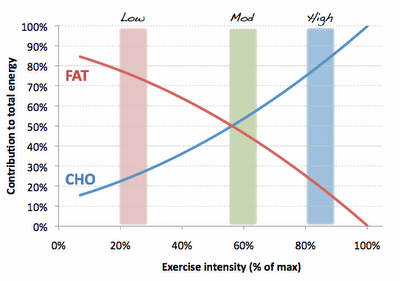Calories are NOT equal
Options
Replies
-
Oh, and this is a good read. I realize that it is an article...but it cites sources and everything
http://www.biolayne.com/nutrition/carbs-at-night-fat-loss-killer-or-imaginary-boogeyman/
It is but watchout, I got shot down for quoting a "mainstream" press article so I hope you don't get shot for a fitness magazine. I note the references
You got shot down for linking to (not quoting) a mainstream article about a study in mice as evidence for carb timing effects in humans.0 -
By someone who hadn't quoted anything. Spot the rational (oh wait, there isn't). Anyway, full article on negative implications for late eating:
http://onlinelibrary.wiley.com/doi/10.1038/oby.2011.100/pdf0 -
By someone who hadn't quoted anything. Spot the rational (oh wait, there isn't). Anyway, full article on negative implications for late eating:
http://onlinelibrary.wiley.com/doi/10.1038/oby.2011.100/pdf
Oh? you didn't see my post of 11.39 today? I quoted "stuff"
And the shot was fired at a badly drafted article. I really didn't like that article. I'm sure you're lovely. So there :P0 -
By someone who hadn't quoted anything. Spot the rational (oh wait, there isn't). Anyway, full article on negative implications for late eating:
http://onlinelibrary.wiley.com/doi/10.1038/oby.2011.100/pdf
Posting the full article does not change the fact that it does not relate to carbs, which was the pertinent part of your assertion.
Conclusion:
In summary, our data demonstrate that the timing of sleep affects dietary behavior and timing of caloric intake. Interestingly, even after controlling for sleep duration and timing, consuming calories in the evening was associated with a higher BMI. When taken together with previous human and animal data, these results underscore the importance of sleep timing and the timing of calorie intake when assessing the relationship between food intake and obesity. Large population studies with detailed timing of both feeding and sleep–wake are needed to determine the generalizability of our findings. In addition, well-controlled physiological studies using biomarkers of sleep, circadian rhythms, and metabolism will be necessary to understand the processes linking circadian rhythms and sleep with behavioral and biological mechanisms involved in weight regulation0 -
0
-
This is like watching someone trying to swim upstream. Hilarious, but also saddening...0
-
Fair point, the article is mostly emphasising the point about eating late increases fat absorption (see observations on triglycerides and lipid absorption) but you're right we were talking about carbs0
-
What am I missing? How does this relate to weight loss?
ETA: actually, I need to read it more carefully, but I think it is implying that the carbs at night help weight loss.0 -
By someone who hadn't quoted anything. Spot the rational (oh wait, there isn't). Anyway, full article on negative implications for late eating:
http://onlinelibrary.wiley.com/doi/10.1038/oby.2011.100/pdf
Oh? you didn't see my post of 11.39 today? I quoted "stuff"
And the shot was fired at a badly drafted article. I really didn't like that article. I'm sure you're lovely. So there :P
Definitely wasn't referring to you. You clearly read the articles before offering view. Not happening everywhere else except for Sarauk2sf0 -
And yet another, this time citing negative impact of evening carbs on glucose serum levels.
http://www.jphysiolanthropol.com/content/32/1/90 -
Studies that impact variables at the acute level are really not that supportive of showing what happens in regard to weight loss when looked at over a longer period.0
-
What am I missing? How does this relate to weight loss?
ETA: actually, I need to read it more carefully, but I think it is implying that the carbs at night help weight loss.
Note the section on elevated triglycerides and lipid absorption as a consequence. My understanding is that this reduces to increased body fat storage0 -
What am I missing? How does this relate to weight loss?
ETA: actually, I need to read it more carefully, but I think it is implying that the carbs at night help weight loss.
Note the section on elevated triglycerides and lipid absorption as a consequence. My understanding is that this reduces to increased body fat storage
You need to look at net fat oxidation over the whole day.0 -
It was this below figure 4, that drew my attention:
"There was a significant rise in plasma triacylglycerol concentrations after the OFTT (Figure 3B⇑) after both evening meals. There was a trend, however, for the difference in triacylglycerol concentrations observed in the fasting state to be maintained, with higher triacylglycerol concentrations after the high-carbohydrate evening meal".
Now, sure, stepping back, we want to look at net fat oxidisation throughout the day - bang on. But the particular point you mentioned that you were challenging was my assertion that carbs in the evening have a negative on weight loss. So here's an example of specific statement with emprical data showing why it's a problem0 -
It was this below figure 4, that drew my attention:
"There was a significant rise in plasma triacylglycerol concentrations after the OFTT (Figure 3B⇑) after both evening meals. There was a trend, however, for the difference in triacylglycerol concentrations observed in the fasting state to be maintained, with higher triacylglycerol concentrations after the high-carbohydrate evening meal".
Now, sure, stepping back, we want to look at net fat oxidisation throughout the day - bang on. But the particular point you mentioned that you were challenging was my assertion that carbs in the evening have a negative on weight loss. So here's an example of specific statement with emprical data showing why it's a problem
What the hell are you babbling about?
Carbs in the evening have no negative effect upon weight loss. Energy oxidation is constant.
If you have high carb intake at night then your fat oxidation will go down due to the glycogen availability.
If you have a high fat intake at night you are storing more fat but you will be burning more fat at night.
I dont understand your point.0 -
ignore the bars on the background of this line chart

the lower fat, the more CHO that will be oxidized and vice versa.
On a hypocaloric diet If 80% of your calories came from carbs your fat oxidation will be minimal, but you will probably not be storing any fat. You will be losing weight.
If 80% of your calories came from fat, you are constantly storing fat, but at the same time your fat oxidation will be very high0 -
What the hell are you babbling about?
Read the articles, for and against before. I'm bored, this was fun but it's boring now.... not going to waste my time with you, got more productive things to do...0 -
What the hell are you babbling about?
Read the articles, for and against before. I'm bored, this was fun but it's boring now.... not going to waste my time with you, got more productive things to do...
yea, like not know what you are talking about.0 -
ignore the bars on the background of this line chart

the lower fat, the more CHO that will be oxidized and vice versa.
On a hypocaloric diet If 80% of your calories came from carbs your fat oxidation will be minimal, but you will probably not be storing any fat. You will be losing weight.
If 80% of your calories came from fat, you are constantly storing fat, but at the same time your fat oxidation will be very high
I'm eating about 65% to 80% fat per day on a ketogenic diet - lost around 7kg 3 in weeks.
http://www.ncbi.nlm.nih.gov/pmc/articles/PMC2716748/
and see http://josepharcita.blogspot.com.au/2011/03/guide-to-ketosis.html#11BB0 -
It was this below figure 4, that drew my attention:
"There was a significant rise in plasma triacylglycerol concentrations after the OFTT (Figure 3B⇑) after both evening meals. There was a trend, however, for the difference in triacylglycerol concentrations observed in the fasting state to be maintained, with higher triacylglycerol concentrations after the high-carbohydrate evening meal".
Now, sure, stepping back, we want to look at net fat oxidisation throughout the day - bang on. But the particular point you mentioned that you were challenging was my assertion that carbs in the evening have a negative on weight loss. So here's an example of specific statement with emprical data showing why it's a problem
But it's not a problem. You cannot look at it at the acute level.0
Categories
- All Categories
- 1.4M Health, Wellness and Goals
- 392.1K Introduce Yourself
- 43.6K Getting Started
- 259.9K Health and Weight Loss
- 175.7K Food and Nutrition
- 47.4K Recipes
- 232.4K Fitness and Exercise
- 404 Sleep, Mindfulness and Overall Wellness
- 6.4K Goal: Maintaining Weight
- 8.5K Goal: Gaining Weight and Body Building
- 152.8K Motivation and Support
- 7.9K Challenges
- 1.3K Debate Club
- 96.3K Chit-Chat
- 2.5K Fun and Games
- 3.4K MyFitnessPal Information
- 23 News and Announcements
- 986 Feature Suggestions and Ideas
- 2.4K MyFitnessPal Tech Support Questions





